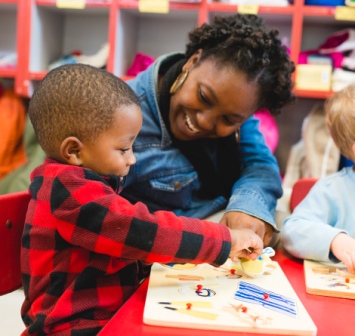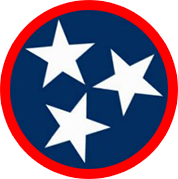Ages 4 To 5 years
Below are the program goals for children in our Preschool Program. Generally by the end of this stage, children may be able To do the following:
Emotional Development
- Dress and undress self with assistance in some areas, such as tying, snapping and buttoning
- Care for own possessions and those belonging To the group most of the time
- Place some toys, materials, etc., in their proper places without constant reminders
- Learn and accept new routines and changes
- Deal with emotions in a developmentally appropriate way, most of the time
- Respond To redirection from staff in a constructive way, most of the time
Social Development & Living
- Understand and participate as a cooperative member of a small group, most of the time
- Share toys and equipment, most of the time
- Make the choice between working alone and in groups and be able To do both at different times
- Cooperate in some group activities and projects
- Categorize people, places, events and objects in terms of whether they belong at child care or home
- Identify various kinds of transportation
- Understand and participate in the celebration of some national holidays
Physical Development / Gross Motor
- Perform motor skills including sliding, leaping, stopping and running
- Walk a balance beam
- Catch a small ball (e.g. softball, tennis ball, etc.)
- Perform physical fitness exercises such as bending, stretching, reaching, relaxing and breathing, etc
- Talk about why exercise is important and helps us grow (e.g. muscles, bones, etc.)
- Use large muscle equipment (e.g. tricycle, slides, etc.)
Fine Motor
- Use scissors and cut simple patterns
- Use small paint brushes and narrow line markers
- Glue or paste small objects in simple patterns
- Copy a triangle
- Assemble an 8-11 piece puzzle
Cognitive Development / Concept Development
- Recognize basic colors: red, blue, yellow, green, orange, purple, white, brown and black
- Identify similarities and differences of common objects on the basis of color
- In addition To identifying a circle, square and triangle, identify a rectangle
- Determine relative size of three objects in terms of big, bigger, biggest and small, smaller, smallest
- Identify similarities and differences of common objects according To their size and shape (e.g. tall/short tree, big/little dog, etc.)
- Develop an awareness of our five senses
- Follow a sequence of at least three directions
Verbal and Written Language
- Recognize and say personal information such as home address and telephone number
- Give simple directions
- Make up a story
- Tell a version of a familiar story (e.g. The Three Bears, etc.)
- Speak in complete sentences
- Follow simple instructions
- Ask for help when needed
- Incorporate new words learned into everyday vocabulary (e.g. from curriculum and daily living, etc.)
- Name basic objects and ideas that are important To daily routine (e.g. bathroom, front door, etc.)
Reading Readiness & Literature
- Name some letters of the alphabet (e.g. upper and lower case)
- Recognize some sight words in environment (e.g. stop, exit, etc.)
- Listen and enjoy being read To
- Answer basic content questions about stories a child has heard
- Relate the endings of familiar stories (e.g. Peter Rabbit, etc.)
- Name and tell about characters in stories
- Recite one or two simple poems or rhymes
- Relate basic cause and effect from a story child has heard
Science
- Participate in planting seeds and caring for growing plants
- Learn about some basic changes, such as ice melting, water boiling
- Construct simple structures using blocks and other building materials
- Experience and talk about weather changes in a simple way (e.g. clouds and rain, cold and snow, etc.)
- Practice basic habits for good health (e.g. wash hands, brush teeth, blow nose, etc.)
- Help prepare and tell about healthy foods
Premath Skills
- Rote count from 1-20 Recognize most numerals from 1-10
- Set enough snacks or other objects on a table for at least eight children
- Identify sets of 0 To 5 objects
- Identify objects in terms of relative size (e.g. bigger than, smaller than or same size as)
- Match a number of objects To corresponding items
Art, Music & Movement
- Use and care for various art materials, including crayons, paste, chalk, clay, finger paints, paint and pencils
- Use additional art techniques, including drawing, collage, painting, printmaking and simple construction
- Use simple art forms To entertain self and others (e.g. movement, painting, drama, etc.)
- Identify simple songs and instruments
- Talk about how various songs make him/her feel (e.g. sad, happy, etc.)
- Participate in a variety of music activities
- Use free-form movement and/or exercise in response To music





